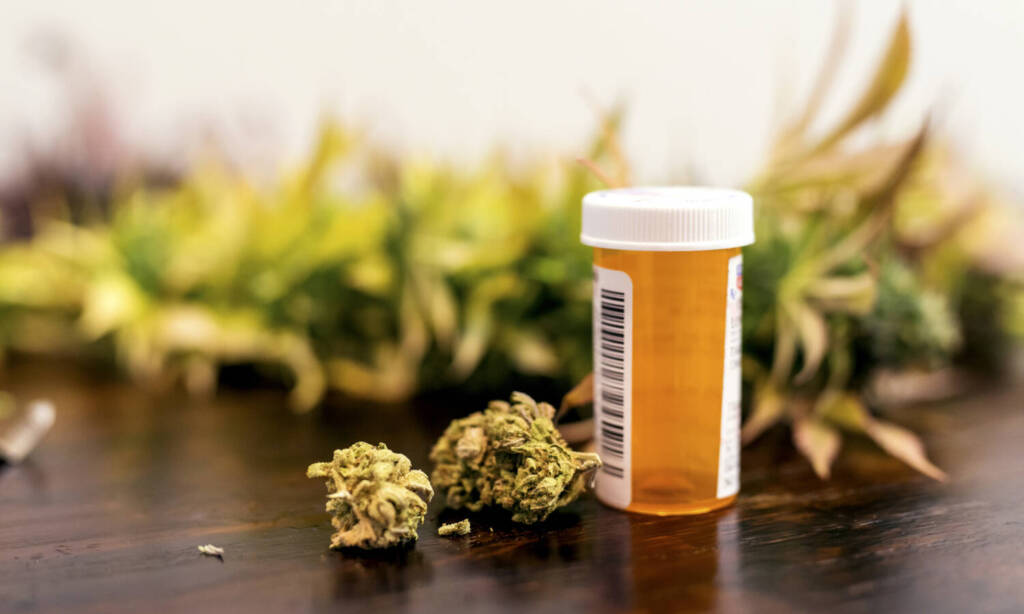
By Jelena Martinovic
It is widely known that cannabis has many medicinal benefits, with managing chronic pain, epilepsy, anxiety and treating the symptoms of PTSD among them.
However, in the case of cannabinoids, a group of substances found in the cannabis plant, there is a risk that combining it with other prescription drugs could pose harmful drug-drug interactions, suggests new research undertaken by scientists at Washington State University (WSU).

The researchers looked at cannabinoids and their major metabolites found in cannabis users’ blood and found that they interfere with two families of enzymes that help metabolize a wide range of drugs prescribed for a variety of conditions. As a result, either the drugs’ positive effects might decrease or their negative effects might increase with too much building up in the body, causing unintended side effects such as toxicity or accidental overdose.
The findings examined the interaction between three of the most abundant cannabinoids – tetrahydrocannabinol (THC), cannabidiol (CBD), and cannabinol (CBN).
While more research is essential, the authors suggested that caution should be taken when using cannabis with prescription drugs.
“Physicians need to be aware of the possibility of toxicity or lack of response when patients are using cannabinoids,” said Philip Lazarus, senior author on the paper and Boeing distinguished professor of pharmaceutical sciences. “It’s one thing if you’re young and healthy and smoke cannabis once in a while, but for older people who are using medications, taking CBD or medicinal marijuana may negatively impact their treatment.”
Lazarus added, “It’s one thing if you’re young and healthy and smoke cannabis once in a while, but for older people who are using medications, taking CBD or medicinal marijuana may negatively impact their treatment.”
The Findings
Researchers used manipulated human kidney cells and confirmed their results in human liver and kidney specimens in which enzymes were present.
RELATED: The Problem With Combining Cannabis Products And Prescription Medications
Shamema Nasrin, a graduate student in the WSU College of Pharmacy and Pharmaceutical Sciences, emphasized that even though cannabinoids stay in the consumer’s body for roughly 30 minutes prior to being rapidly broken down, the metabolites that result from that process could remain in the system up to 14 days.

Moreover, metabolites are also found “at higher concentrations than cannabinoids,” she further explained, adding that they have been “overlooked in previous studies.”
Potential negative drug interactions include a decrease of the drugs’ positive effects, as well as an increase in its negative effects resulting in the excessive build-up in the body that could cause unintended side effects such as toxicity or accidental overdose.
RELATED: Medical Marijuana Not Always An Affordable Alternative To Prescription Drugs
“Taking CBD or marijuana might help your pain but could be making the other drug you’re taking more toxic, and that increase in toxicity may mean that you can’t continue taking that drug,” Nasrin said. “So, there could be serious ramifications for anti-cancer drugs, and that’s only one example of the many drugs that could potentially be affected by the cannabinoid-enzyme interactions we’re seeing.”
This article originally appeared on Benzinga and has been reposted with permission.




